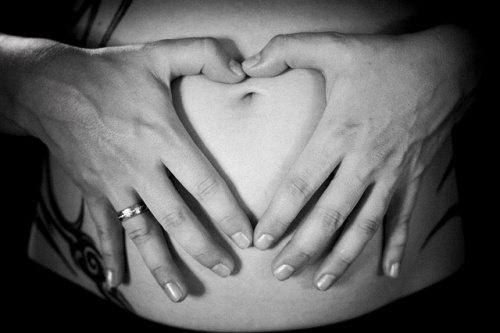Find Out What Your Baby Is Doing Inside The Womb

Babies are extraordinary beings and act like it even from inside the womb.
What your baby does while inside the womb is as fascinating as their behavior whenever you have them in your arms.
Even though they are not yet aware of how humans behave or what adventures they will soon have, they remain constantly active.
If you want to know what your little peanut may be doing right now, we invite you to keep reading.
This article is specially written in order to satisfy the curiosity of those mothers who love to follow the development of their baby month to month, week to week, and minute by minute.
Your baby is listening to you.
Your baby can hear your heartbeat. That will be one of the sounds that will calm them down and make them happy once they are out of your womb.
In addition to your heartbeat, your baby can hear your voice as well as that of those who are speaking near you.
Despite the fact that in the amniotic fluid “nothing” interrupts the vibrations of internal sound from getting to them, they are also able to hear traces of the music you play and all of the sounds of the world around you.
This happens after your baby has developed for 20 weeks.
Your baby sucks their thumb.
Just a few hours after they are born, when you breastfeed, your baby starts sucking milk from your breast.

At first you will find it difficult. You may not even feel interested in it; but in a very short time they will be breastfeeding as easily as if they had been trained to do it.
Well, at You Are Mom we can tell you that many babies are “trained” to suck at the breast of their mothers, and this is from them sucking their thumb while still in the womb.
Your baby gets hiccups.
Your baby can get hiccups, more often than you are even able to imagine. This is a fairly frequent occurrence, especially during the last trimester of pregnancy.
Some specialists suggest that such spasms may be another way to prepare their organs for life outside the womb.
The contraction of the diaphragm and the entry of the amniotic fluid into their lungs serve to strengthen these structures.
Your baby has facial expressions.
After the sixth month, usually your baby can blink with their eyes.
As if they possess the emotions of adults, your baby smiles, frowns and makes other facial gestures while in your womb.
Your baby follows a routine.
Although it may sound funny, your baby follows a routine while they are growing inside you.
By the seventh month they will already have a defined schedule in which they regularly complete different “tasks.”
They wake up, move, go to sleep… all on their own schedule.
Find Out What Your Baby Is Doing Inside The Womb

Besides all the wonders that we have already told you about, we want you to know that while you may be watching TV, showering, resting, or talking, your baby is also staying busy.
They are mainly busy with eating and growing as much as possible before going out into the world. On top of that, they do things that you couldn’t even guess.
While inside the womb, your baby will be:
• Opening and closing their fists,
• Touching their face,
• Dreaming,
• Playing with the umbilical cord,
• Kicking,
• Rubbing their eyes,
• Sleeping,
• Moving, and spinning,
• Ingesting more amniotic fluid when it has a higher concentration of sugar,
• Urinating,
• Playing with you, (if you tap on your belly, your baby will answer you with twists and kicks)
• Touching their feet,
• Sticking out their tongue,
• and finally positioning themselves upside down when the time comes to be born.
As you can see, the development of your baby in your womb involves a lot more than just getting fed through the umbilical cord.
Finally, their brain and body are preparing themselves for life outside of the womb, developing now “since they have the time,” developing all of the functions that will allow them to become a fully capable boy or girl.
All cited sources were thoroughly reviewed by our team to ensure their quality, reliability, currency, and validity. The bibliography of this article was considered reliable and of academic or scientific accuracy.
- Gabriel, F. (1999). Musicoterapia y embarazo. II jornadas de conceptualización de la, 2.
- Zaragozano, J. F. El hipo,¿ un signo inane en pediatría?. PediatríaIntegral, 361.
This text is provided for informational purposes only and does not replace consultation with a professional. If in doubt, consult your specialist.
